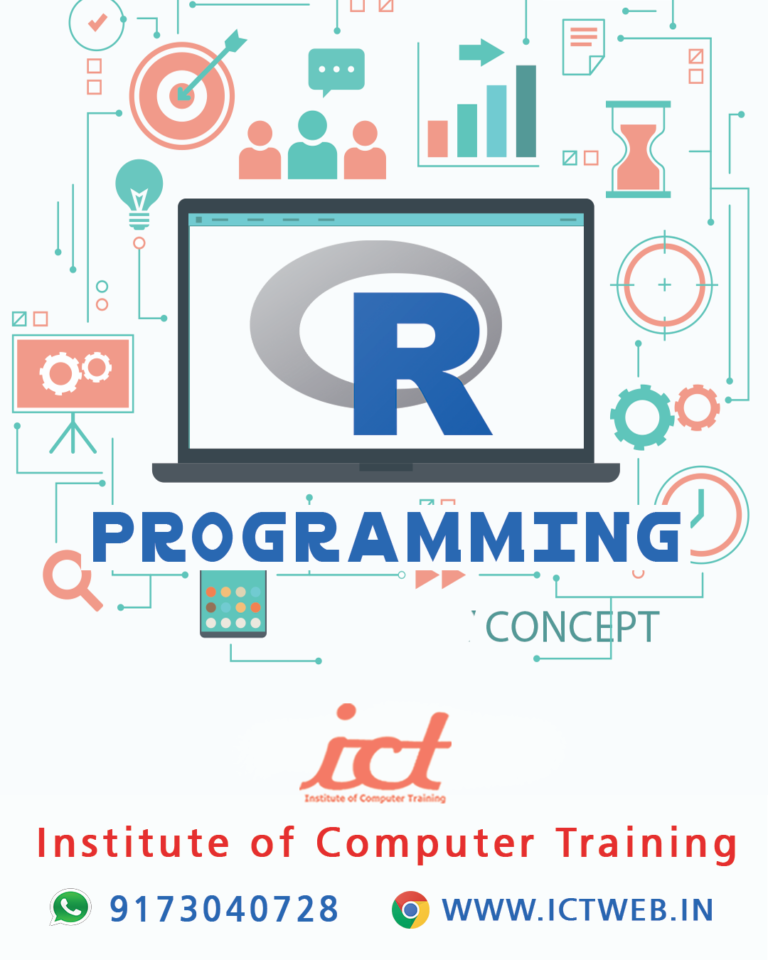In today’s data-driven world, mastering R programming can open doors to numerous opportunities in data analysis, statistical modeling, and machine learning. Whether you are a beginner looking to learn data science or an experienced professional aiming to sharpen your skills, enrolling in an R programming course at ICT Ahmedabad can be the ideal step to enhance your expertise.
Why Choose R?
R is a powerful language designed specifically for data analysis and visualization. It offers a plethora of packages and libraries that simplify complex statistical computations and data manipulations. Here are some compelling reasons to learn R:
- Robust Statistical Support: R has been developed by statisticians for statisticians. Its extensive collection of statistical packages makes it a favorite for data analysts and researchers.
- Data Visualization: R excels in creating informative and visually appealing graphics. Libraries like ggplot2 allow users to create stunning visual representations of data.
- Open Source: Being open-source, R is free to use. This makes it accessible to everyone, from students to industry professionals.
- Community Support: With a vast community of users, finding help and resources online is easy. Forums, blogs, and documentation can assist you in overcoming any hurdles.
- Integration Capabilities: R can easily integrate with other languages like Python, C++, and SQL, making it versatile for various projects.
Top R Programming Training Institutes in Ahmedabad
❖ R Basics
❖ Fundamentals of R
❖ Variables in R Language
❖ Input and Output in R
❖ Decision Making
❖ Control Flow in R Programming
❖ Functions
❖ ‘R’ – Data Structures
❖ Strings
❖ Vectors
❖ Lists
❖ Arrays
❖ Matrices
❖ Factors
❖ DataFrames
❖ Object Oriented Programming in ‘R’
❖ Error Handling
❖ File Handling ( CSV, JSON, EXCEL, XML, JSON)
❖ Import – Export Data in ‘R’
❖ Packages in ‘R’
❖ Functions in ‘R’
❖ Data Interfaces
❖ Data Visualization
❖ Charts, Graph and Plots in ‘R’
❖ Statistics in ‘R’ Programming
Learning Outcomes
Upon completing an R programming course, participants can expect to:
- Understand R syntax and basic programming concepts.
- Manipulate and clean datasets for analysis.
- Create visualizations to interpret data effectively.
- Conduct statistical analyses and interpret results.
FAQs About R Programming Courses
- Who should take an R programming course?
Anyone interested in data analysis, statistics, or machine learning can benefit from an R programming course. It is especially useful for data scientists, analysts, researchers, and statisticians.
- Do I need prior programming experience to learn R?
No, many R programming courses are designed for beginners. Basic knowledge of programming concepts can be helpful but is not a prerequisite.
- How long does it take to complete an R programming course?
The duration of R programming courses can vary widely, ranging from a few weeks for introductory courses to several months for more comprehensive programs. Your pace will depend on the format and your schedule.
- Are R programming courses worth the investment?
Yes, learning R can significantly enhance your skill set and career prospects in data analysis and related fields. The demand for professionals proficient in R is steadily increasing.

